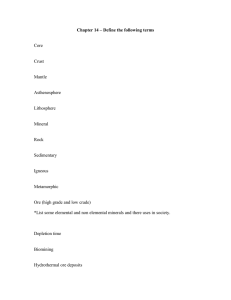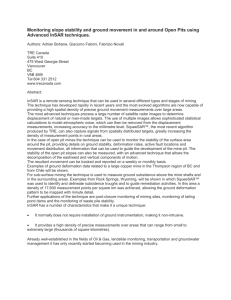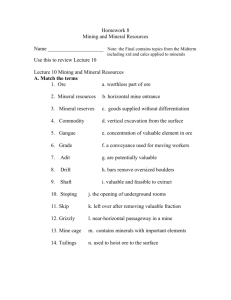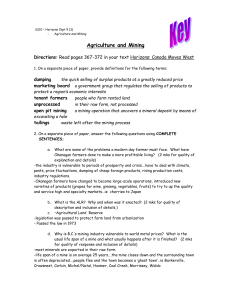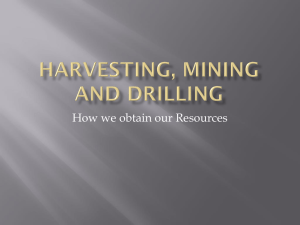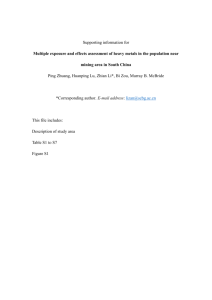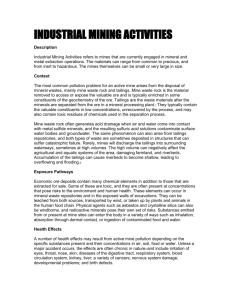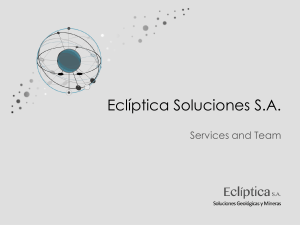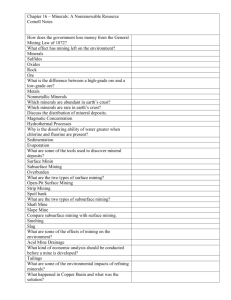Mining
advertisement
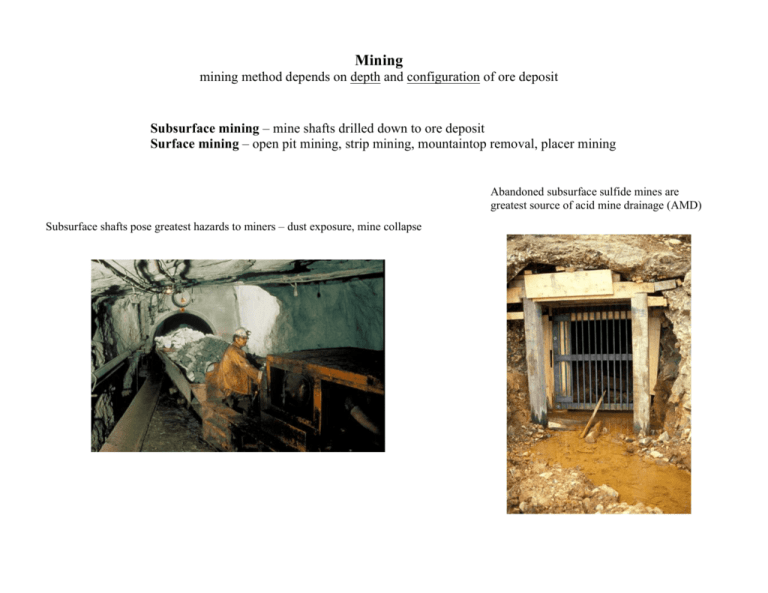
Mining mining method depends on depth and configuration of ore deposit Subsurface mining – mine shafts drilled down to ore deposit Surface mining – open pit mining, strip mining, mountaintop removal, placer mining Abandoned subsurface sulfide mines are greatest source of acid mine drainage (AMD) Subsurface shafts pose greatest hazards to miners – dust exposure, mine collapse Surface mining has greatest effect on the environment – alters topography, surface water and groundwater flow, and vegetation Open pit surface mine – disseminated copper deposit (Bingham Canyon, Utah – deepest open pit in the world) Mountaintop Removal for coal - Appalachia, Kentucky Strip mine – coal layer close to surface Old strip mine, Illinois, closed prior to enactment of SMCRA. Source of AMD due to iron sulfide impurities in the coal. Gold placer, Yuba, Ca. – mechanized panning machine Panning mechanism – separating gold from other sediment based on density Whether from subsurface or surface mining, waste tailings are discarded in dry tailings piles or as slurry in artificial holding ponds. Most tailings are fine-grained (can be blown easily by wind), contain waste ore material (typically metals) and contain waste sulfides (producing acid when mixed with water).
